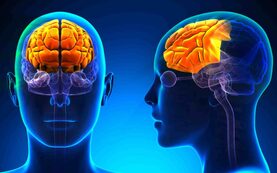 During these stressful times, it is important to be mindful of our level of anxiety. One a scale of 1 to 10 with 10 being the highest, what number would you rate your average level of anxiety in the previous 2 weeks? Has your anxiety increased since the pandemic? If you are experiencing an increase in anxiety, then you are definitely not alone. The collateral damage from the pandemic has caused a significant increase in deteriorating the mental health of individuals who have lost their jobs, have financial issues, and the first responders who work long hours. Normal and familiar coping mechanisms are no longer effective and according to Forbes, The Pandemic Has Caused An Increase In Anxiety, Stress, Depression, And Suicides. According to Dr. Ann Epstein, a psychiatrist at Harvard-affiliated Cambridge Health Alliance and medical editor of the Harvard Special Health Report Coping with Anxiety and Stress. "Anxiety signals us that something is awry or might need our attention. However, you don't want the response to become exaggerated or to dominate your life," she says. Increased anxiety can affect your decision-making process, your health, and your relationships. Techniques to reduce stress and anxiety can help you stay healthy during turbulent times. Below is information about the breathing technique as well as a basic cognitive-behavioral technique to treat the anxiety. The first step is to become more aware of the anxious symptoms such as increased heart rate, heavy feeling in the chest, shaking hands, racing thoughts, etc. Then acknowledge the anxiety and try not to resist it. Below is an explanation to help better understand the etiology of anxiety. When we have a feeling of anxiety, the prefrontal cortex is flooded with thoughts which are brain chemicals also called neurotransmitters. This is called anxiety. This increased volume of thoughts or neurotransmitters can become overwhelming which causes anxiety. When we suppress the anxiety, we may experience depression. When anxious thoughts occur, they trigger a glad inside the brain called the hypothalamus. This is known as the "fight or flight" gland. If you have ever watched a terror movie, you would notice you would become nervous about the person in the movie. That's because the hypothalamus cannot tell if you are in the movie or watching it. The hypothalamus cannot tell the difference between reality and perceived reality. The hypothalamus tells the rest of the body to react, create adrenaline, and create more neurotransmitters. This same process takes place when we react to negative thoughts, memories, or when anxiety builds up over time and releases. When this happens we try different ways to cope and control this uncomfortable feeling. Some people drink or use drugs, some have panic attacks, others control food. The reaction is a cycle. To change this reaction, we have to break or interrupt the cycle. Here is a breathing technique to reduce anxiety. Take one huge breath and exhale. Then breathe in through the mouth for 8 seconds, hold your breath for 4 seconds, and exhale through the nose for 8 seconds. The cycle of anxiety, depression, or racing thoughts is interrupted by the breathing. This is because oxygen literally dilutes the number of neurotransmitters in the prefrontal cortex. The prefrontal cortex of the brain is where the thoughts and anxiety are dwelling. This reduction of neurotransmitters (thoughts) tells the hypothalamus that you are not in danger and causes your negative thoughts and emotions to decrease. The other part of this treatment is to increase awareness of when you are anxious. Become more mindful of when you experience anxiety. Notice the physical symptoms, acknowledge them, and accept that you are anxious. Then practice the breathing exercise. Without intervention, the cycle of anxiety is not likely to change. In other words, if you keep doing the same thing you have always done, you’ll get the same thing you always got. You must interrupt the cycle of anxiety in order to change it. The breathing technique would be practiced once an hour for approximately 1 to 2 minutes if possible. Sources: Forbes; Jack Kelly, Senior Contributor https://www.forbes.com/sites/jackkelly/2020/08/18/the-pandemic-has-caused-an-increase-in-anxiety-stress-depression-and-suicides/#58c67f785863 Harvard Health, Harvard medical school https://www.health.harvard.edu/anxiety/staying-calm-in-turbulent-times?utm_content=buffer917a0&utm_medium=social&utm_source=twitter&utm_campaign=buffer
Dave Dubinsky
9/2/2020 05:03:53 am
You are a great a clinician as you are a trumpeter. Thankfully, I’m not plagued with anxiety, but I will pass along your thoughts and recommendations to others. Take care and be well!!! 🎺❤️😎
Hilda Crawford
9/2/2020 07:26:11 am
Thanks for freely sharing this technique.
Kurt Schmid
9/2/2020 10:07:24 am
Thank for posting this, Mark. Breathing is so fundamental, and important. Comments are closed.
|